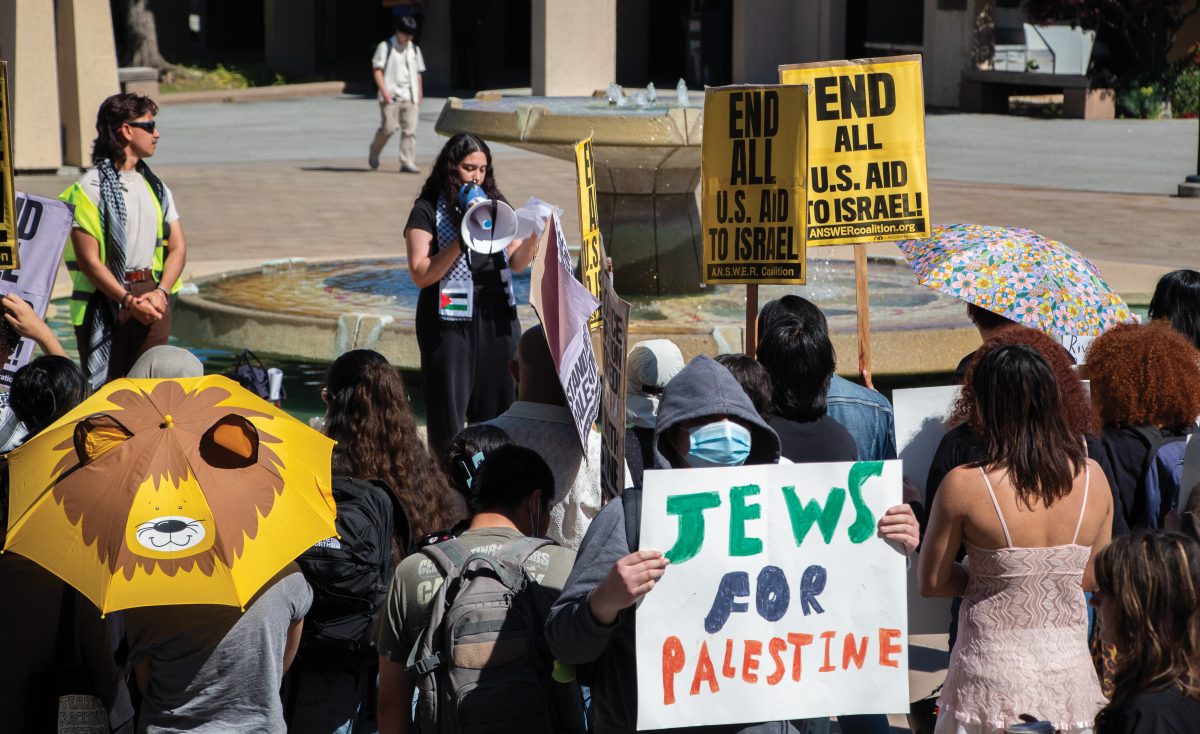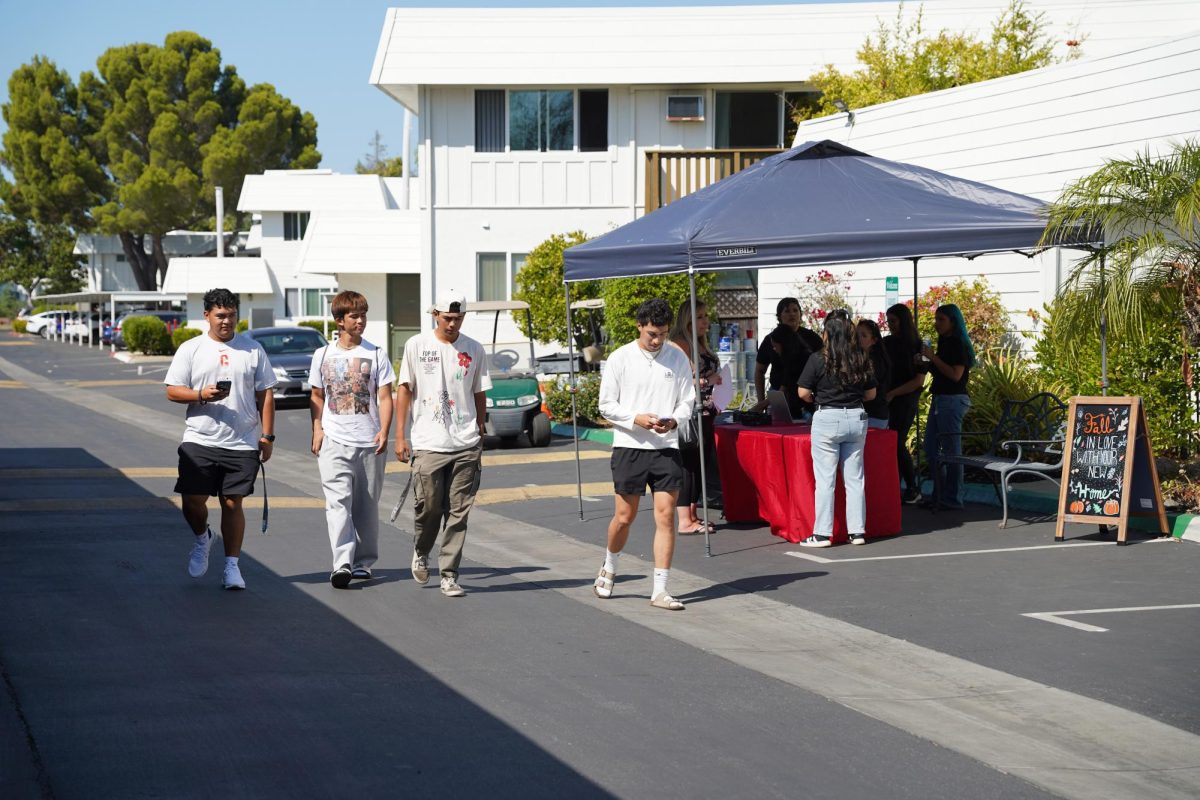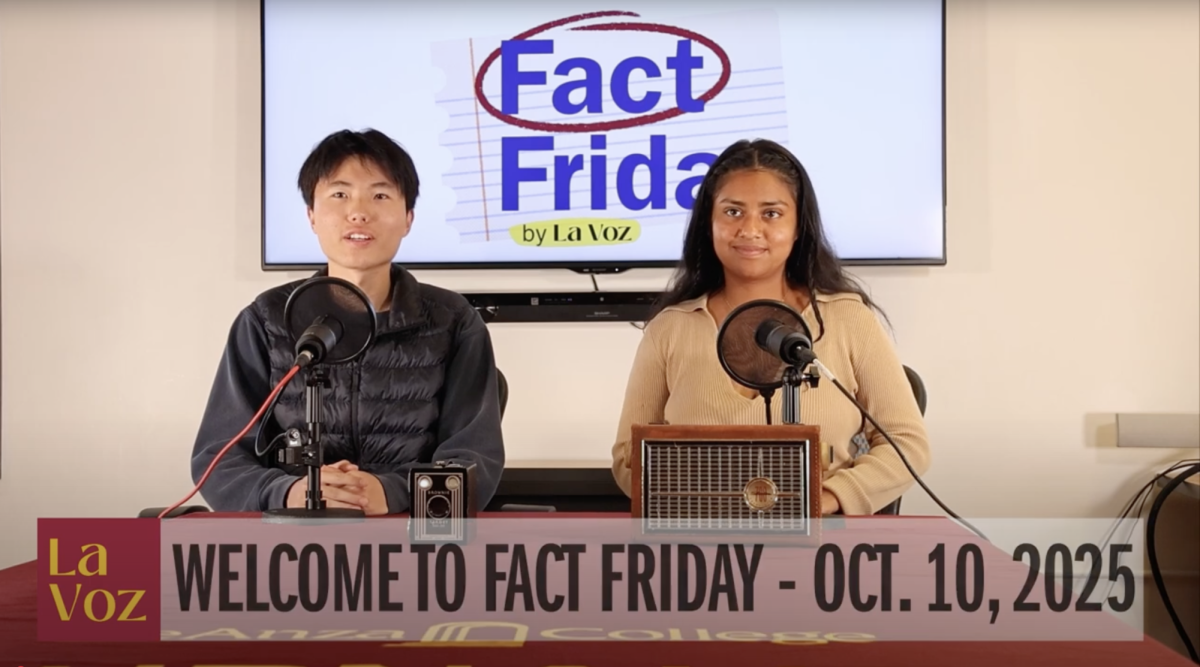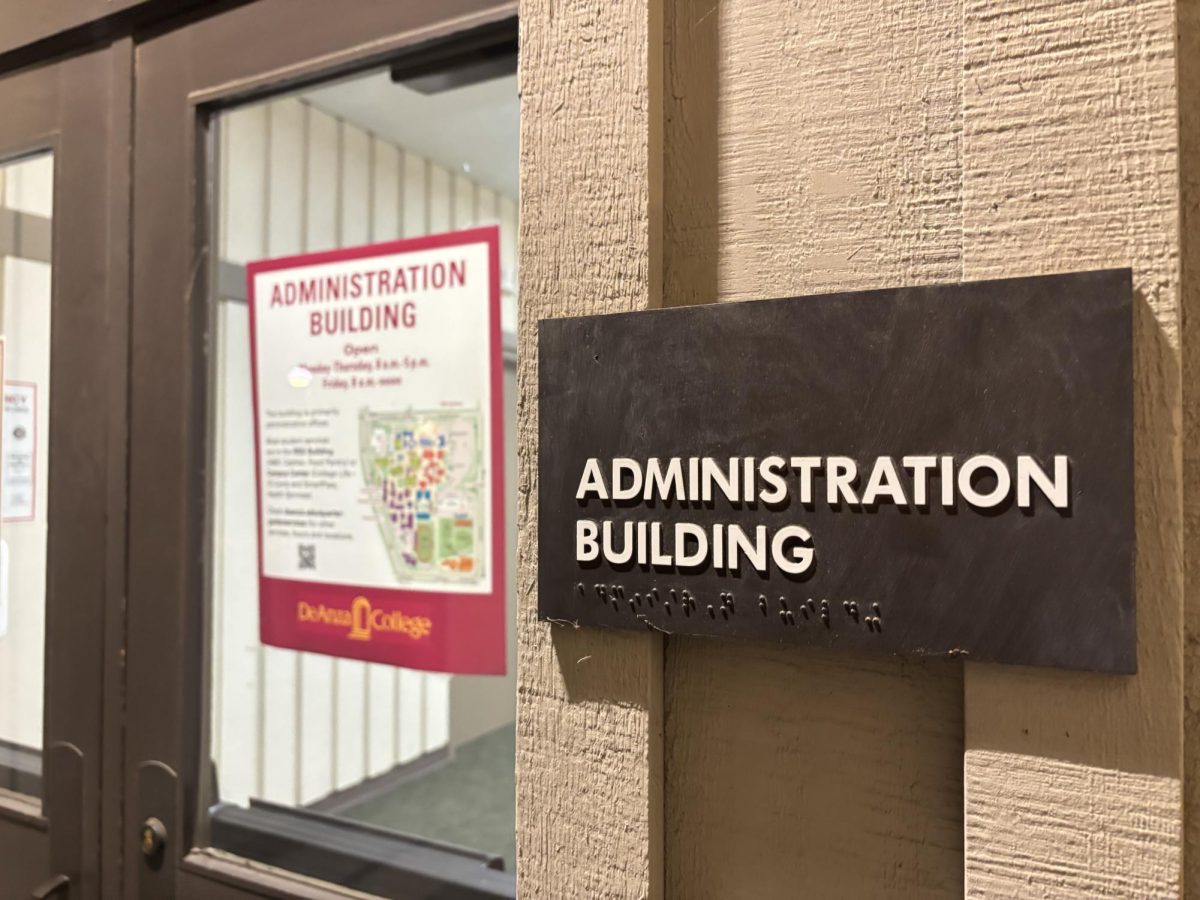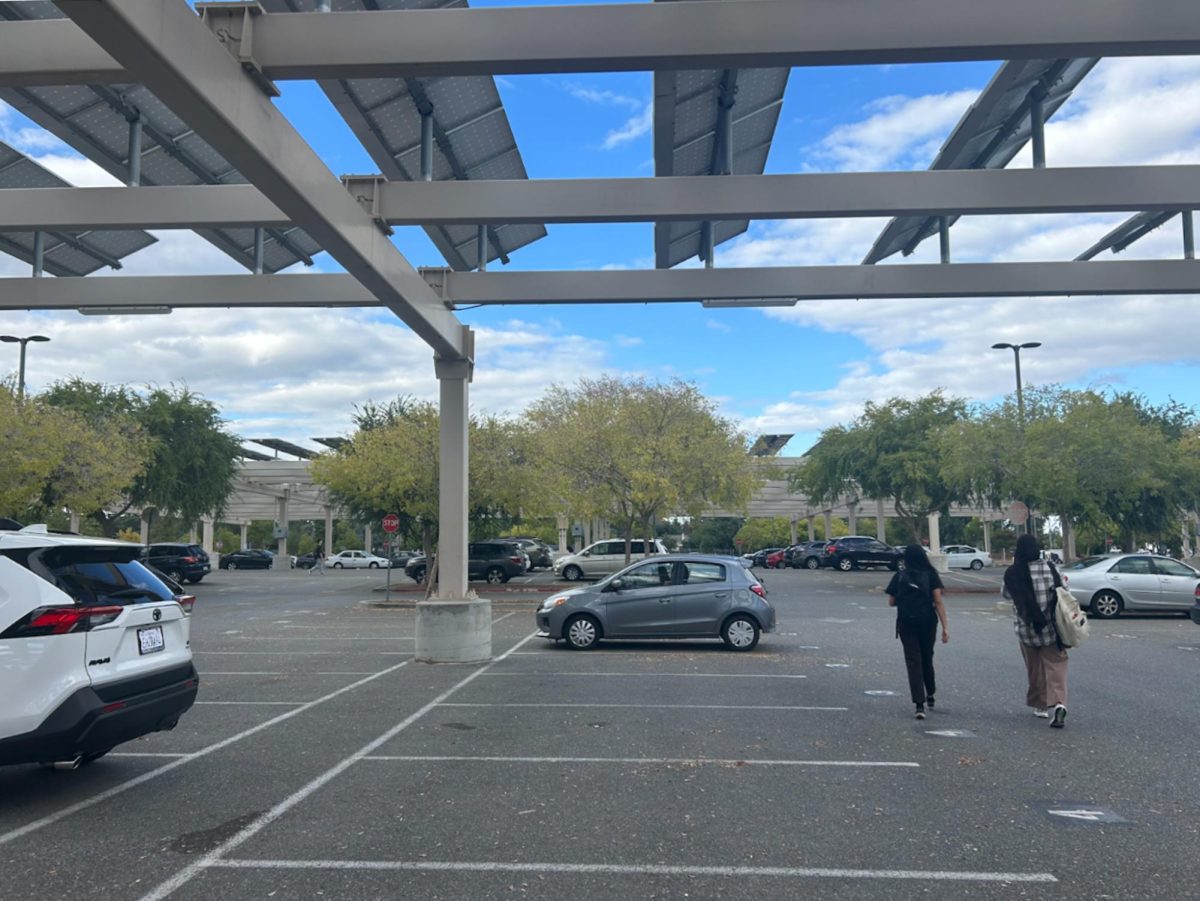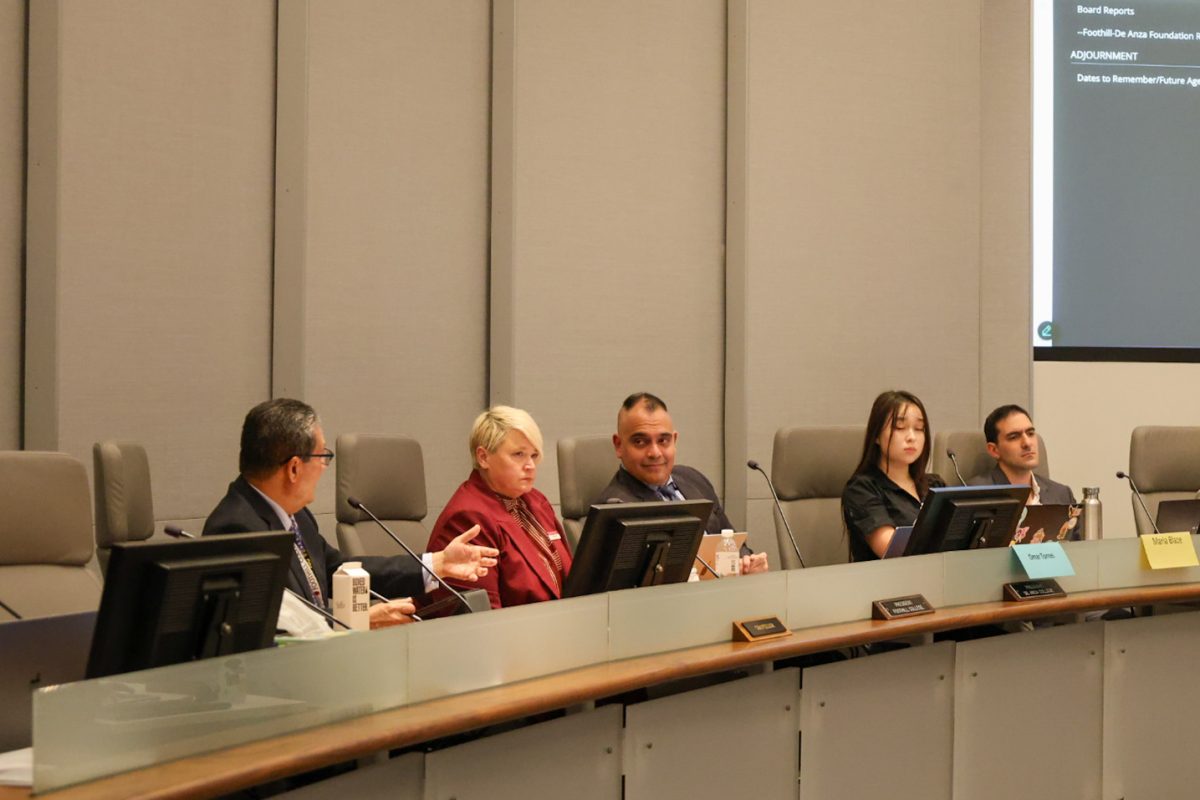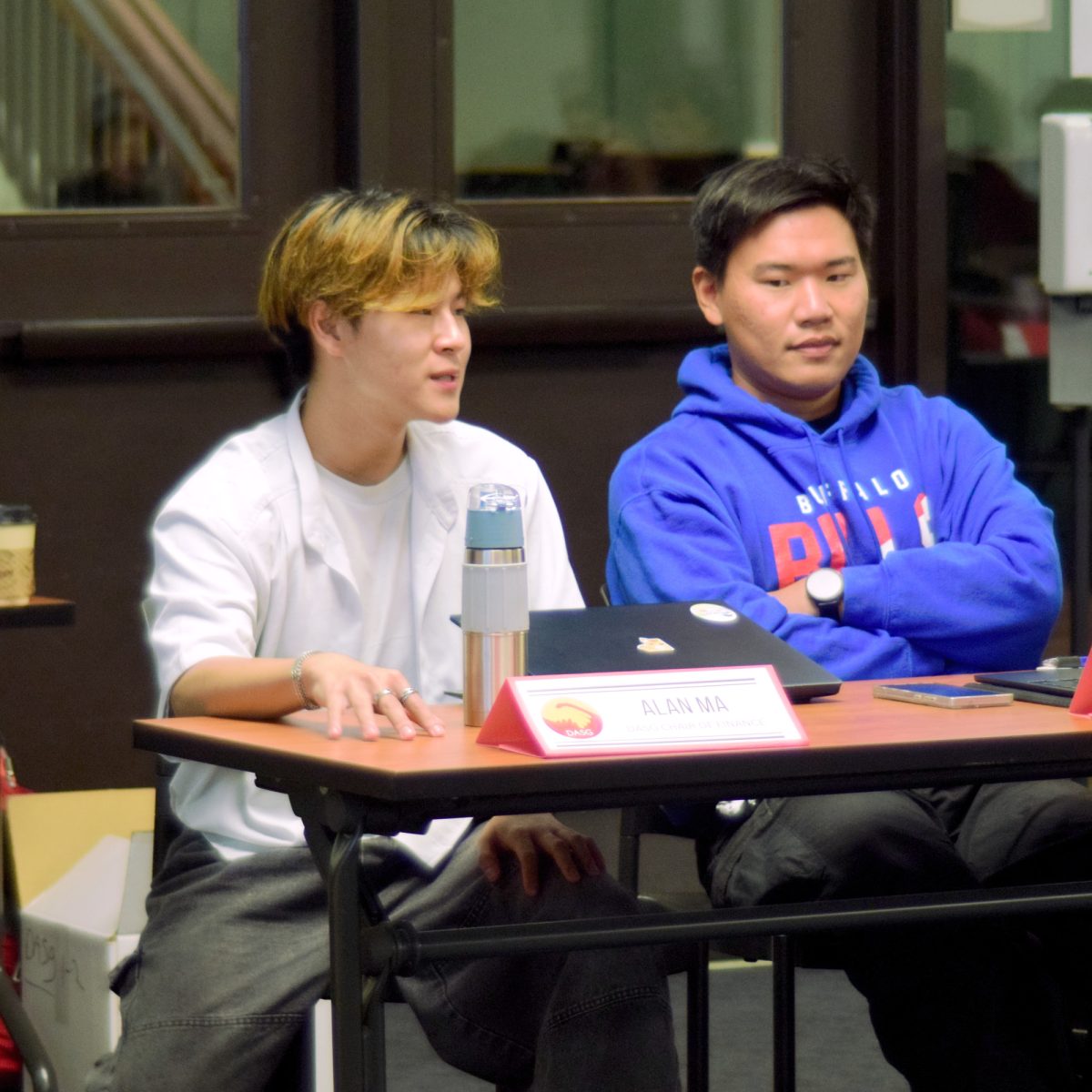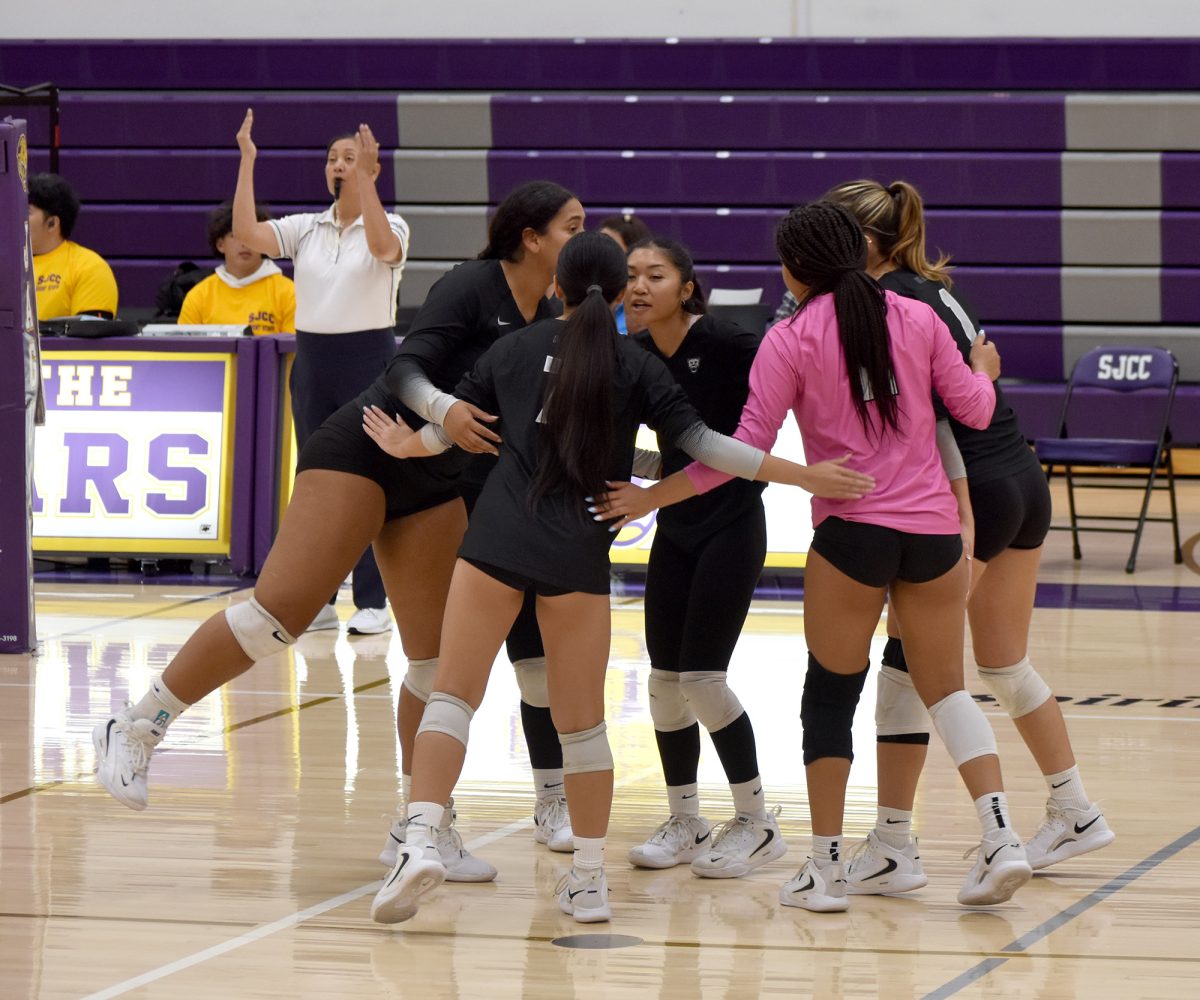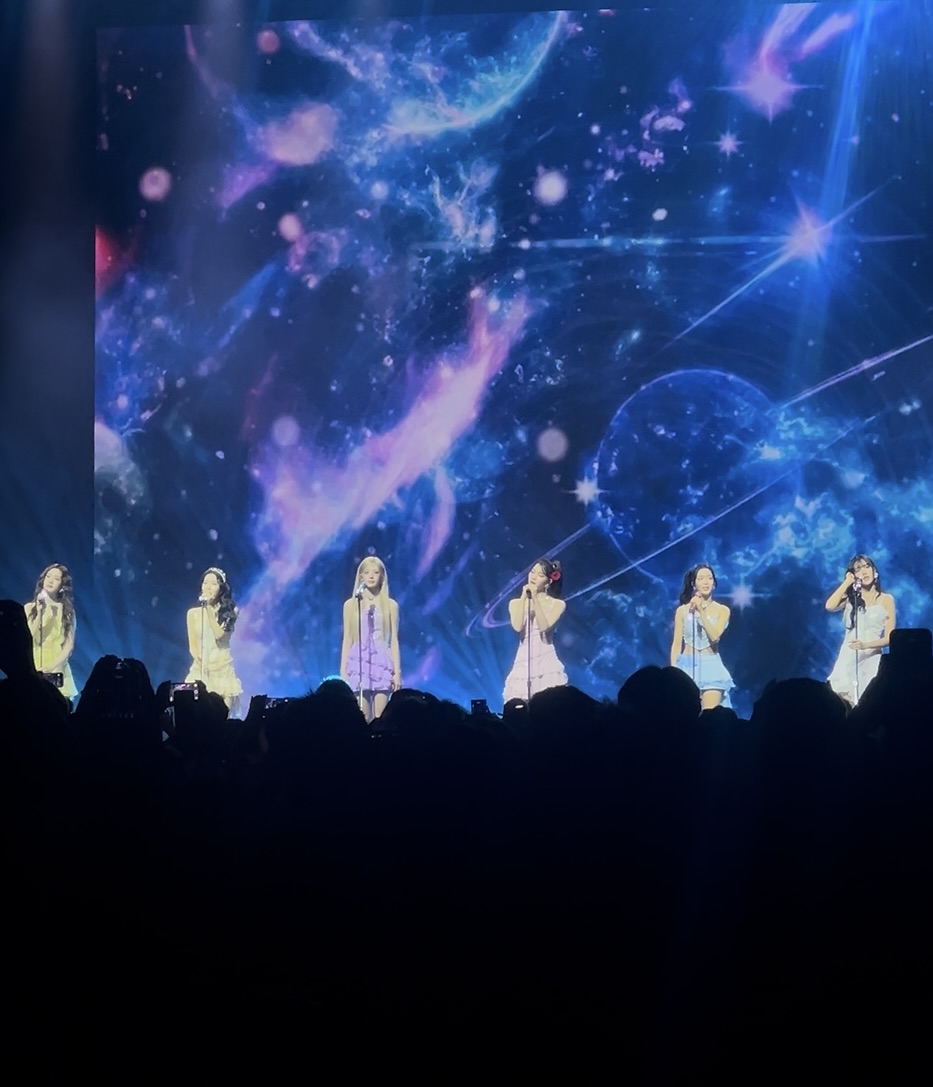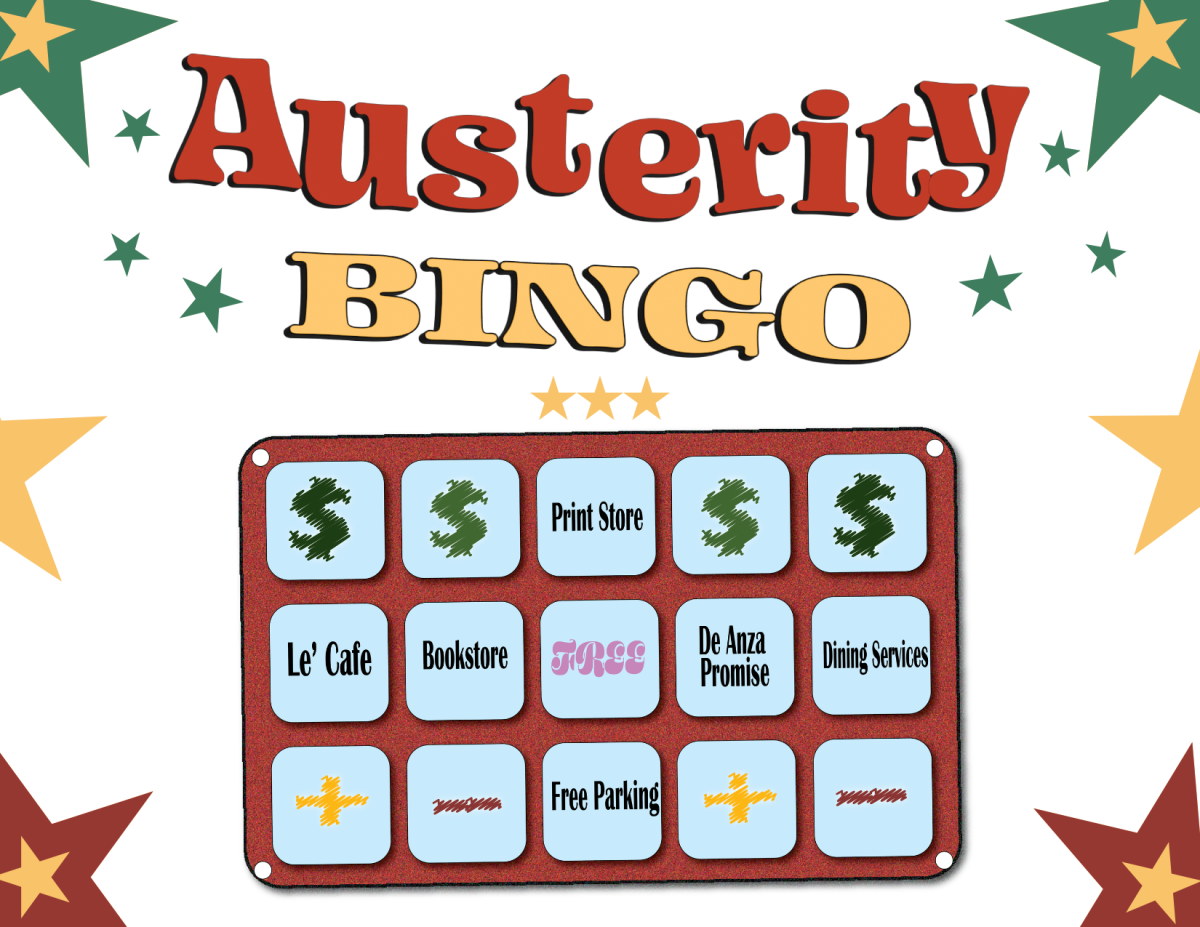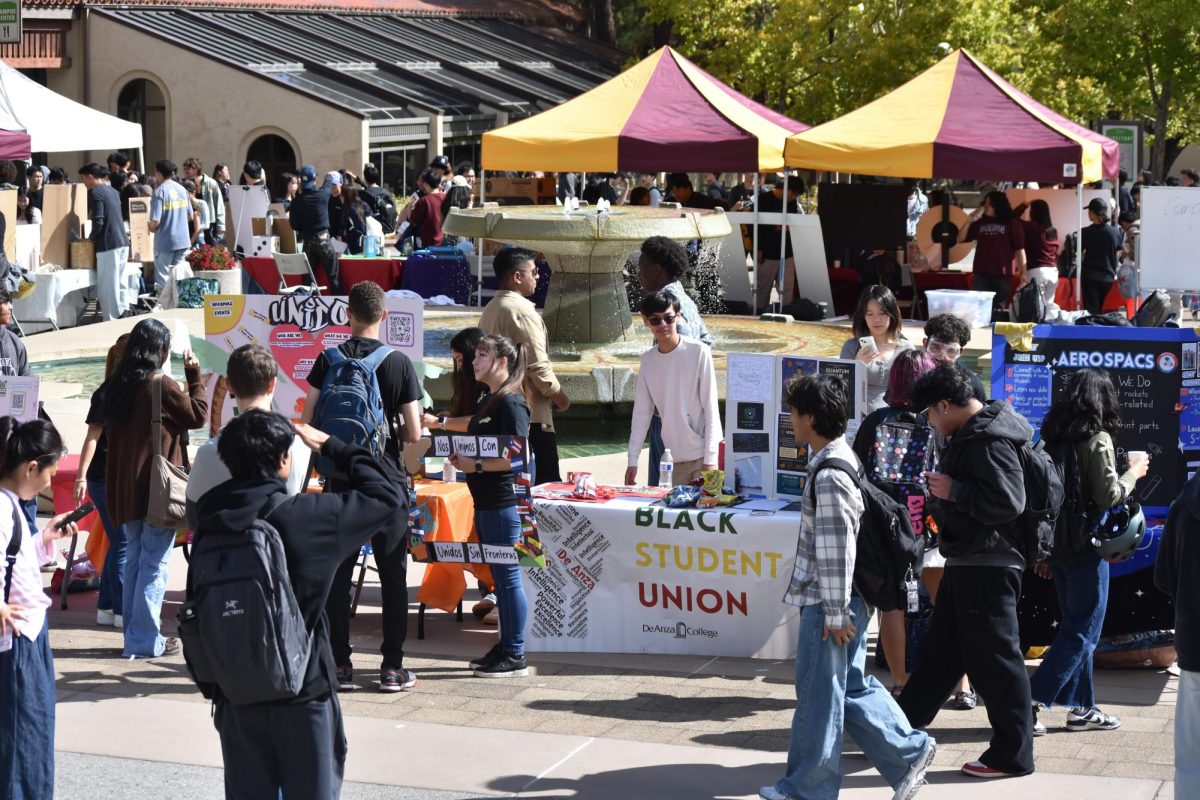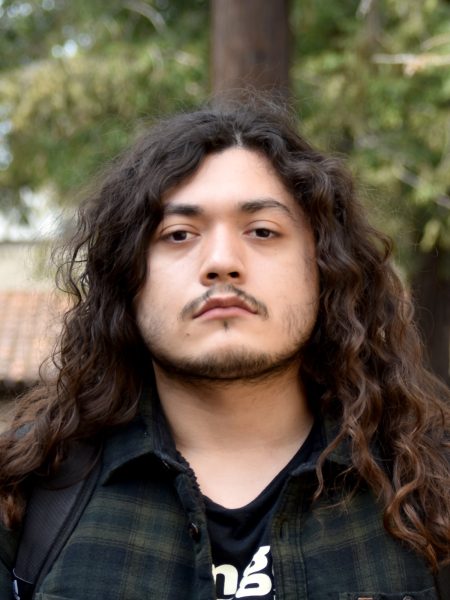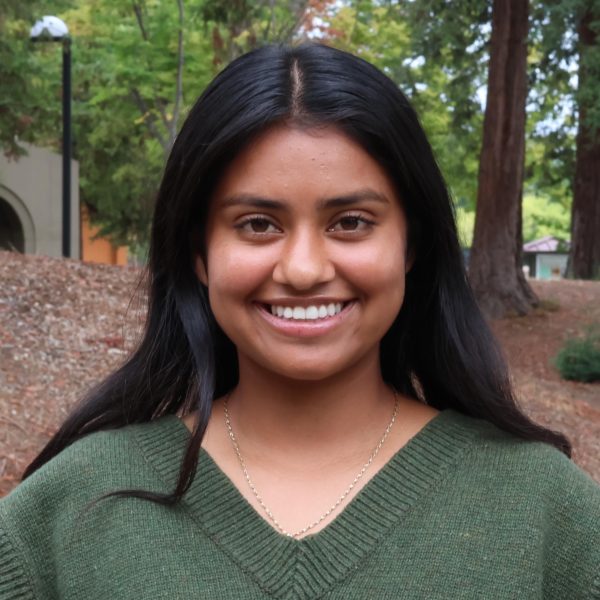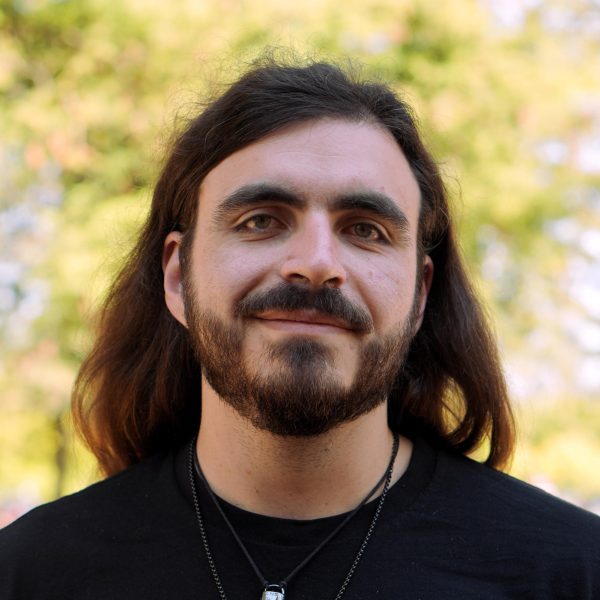Around 60 protesters gathered in De Anza College’s main quad on May 9 for a “Walkout & Art Build for Palestine” event.
The group held Palestinian flags, keffiyehs, which are traditional headdresses that pay homage to Palestine, and signs calling for the end of the United States’ aid to Israel.
“I think that the diversity in this walkout is beautiful and I think it’s a show of humanity, empathy and acknowledging a humanitarian cause,” said a speaker of the Muslim Student Association of De Anza.
Protests on college campuses across America are calling for divestments of weapons manufacturers and a ceasefire in Gaza. This event aimed to pressure the administration to speak about Palestine, said Xitlaly, a member of the Party for Socialism and Liberation who declined to give their last name.
“We are demanding that De Anza pass a ceasefire resolution, as we know they have spoken about Ukraine, so we know they can say something about Palestine,” Xitlaly said.
The De Anza Student Government issued a statement condemning violations of international law in regards to the war in Ukraine, previously. Since March 2, 2022, De Anza’s website links resources to extend humanitarian aid for people in the Ukraine.
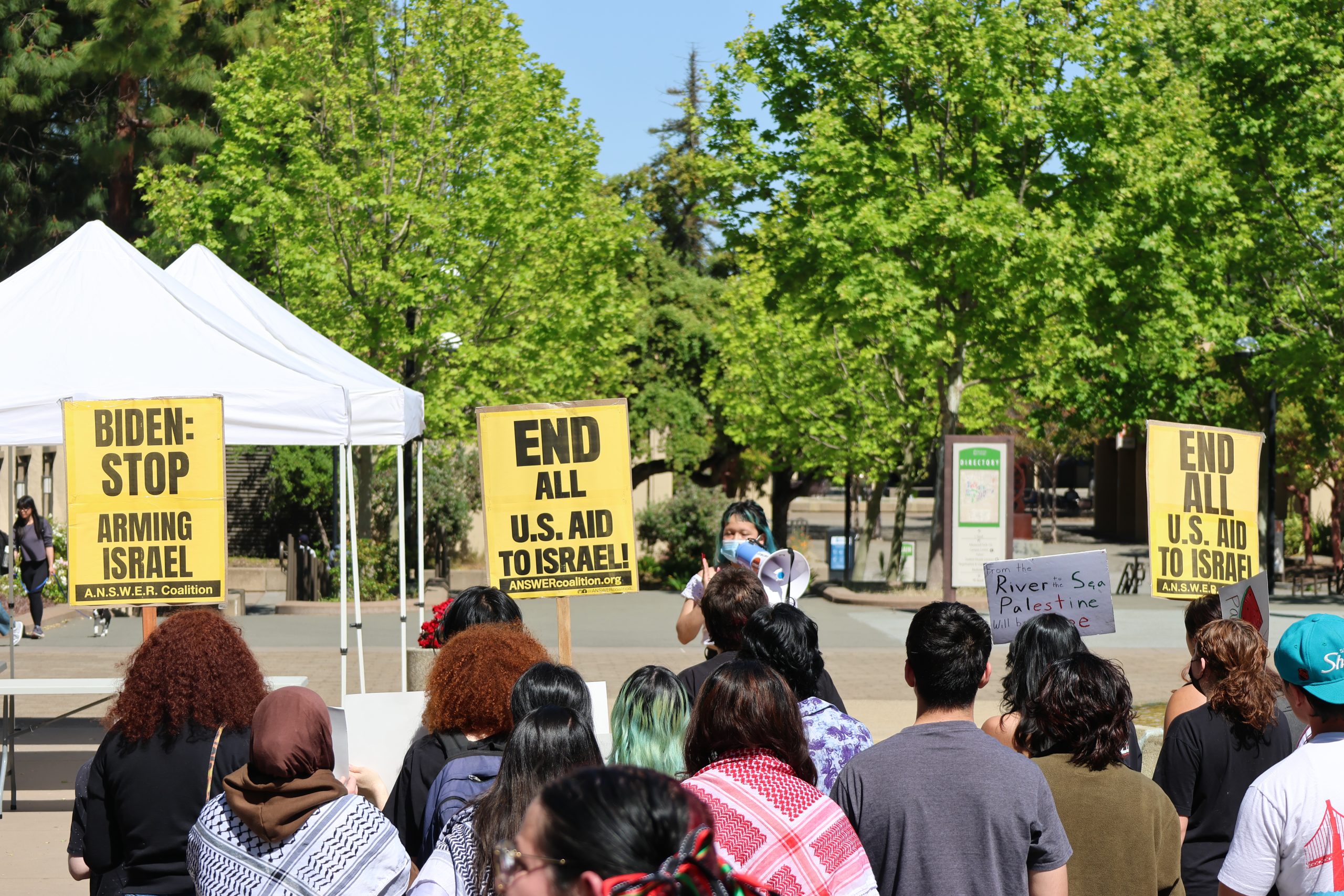
Protesters were centered in the designated free speech area of campus in front of the fountain that speakers used as a stage. Spectators could be seen in the shaded areas of the nearby buildings and under the trees of the Student Center.
In collaboration with Stanford University’s pro-Palestine protest, the “Walkout and Art Build for Palestine” pledged to create signs for their cause after the conclusion of the speeches.
Henry Bernard, 19, graphic design was viewing the protest and expressed interest in people’s perspectives and how many had shown up.
“I think it’s good for people to take a stance because it opens up dialogue,” says Bernard. “So they might figure out, hey Palestinians, they’re not so different from you and me.”
Organizer Lia Washington, 19, political science major, had stated the significance of this protest since it was one of the first times the Black Student Union, International Relations Advocacy Club and MSU collaborated for a protest.
“This is one of the first times BSU, IRAC and MSA have been able to come together and work on something on campus,” Washington said. “It’s safe to say we’ve been somewhat discouraged when it comes to things like this.”
She goes on to say the main focus of this protest was to find comfort in one another and to try to heal.
“With everything going on in the world and seeing the atrocities and things that are happening, it’s really important for us not just to stand together in solidarity but also to be able to find closure,” Washington said. “Seeing a lot of the gruesome things that happen, it can callous us and desensitize how we’re feeling. It’s important to heal together and also be able to then come together.”



